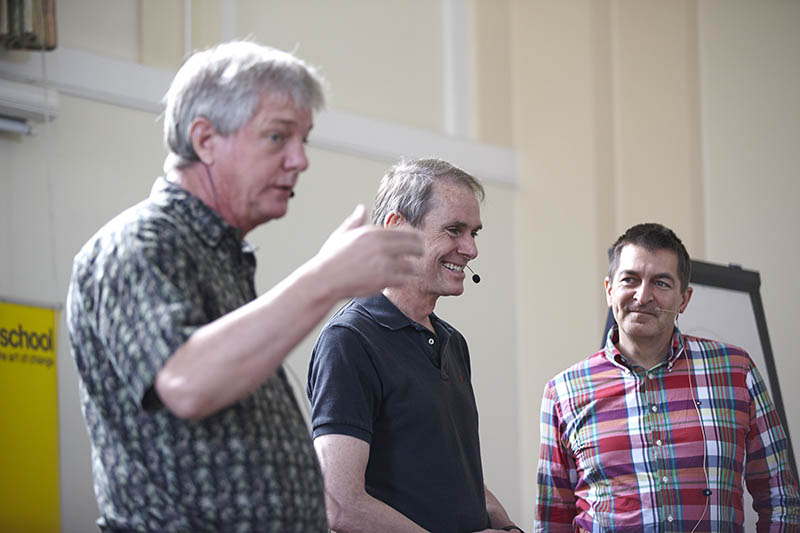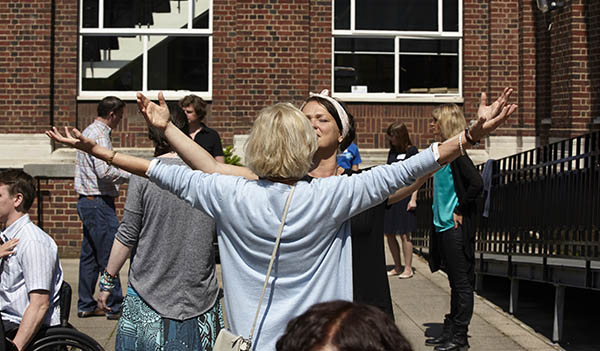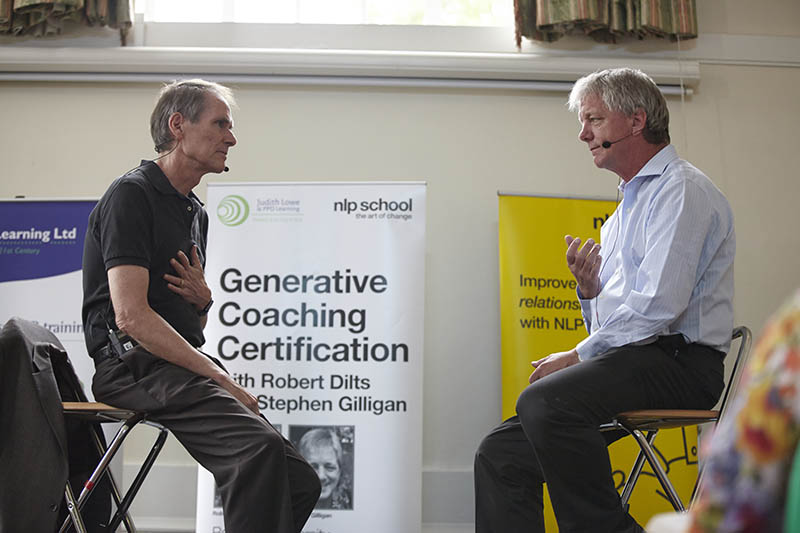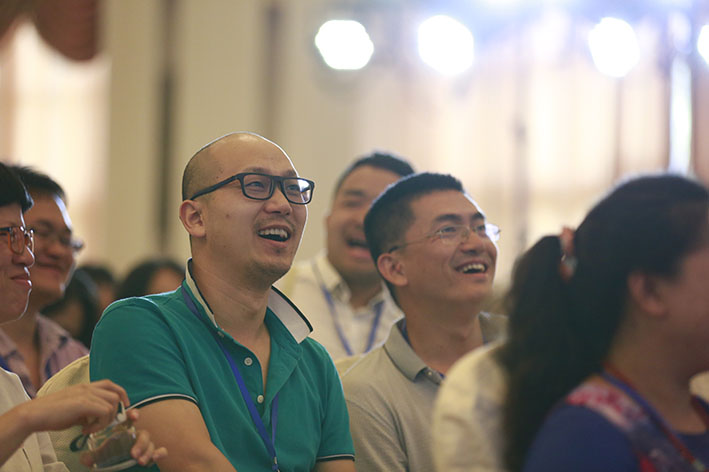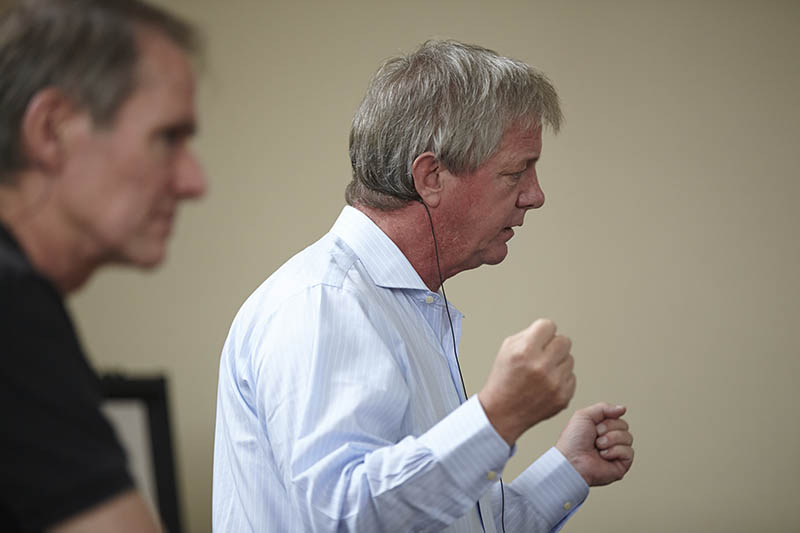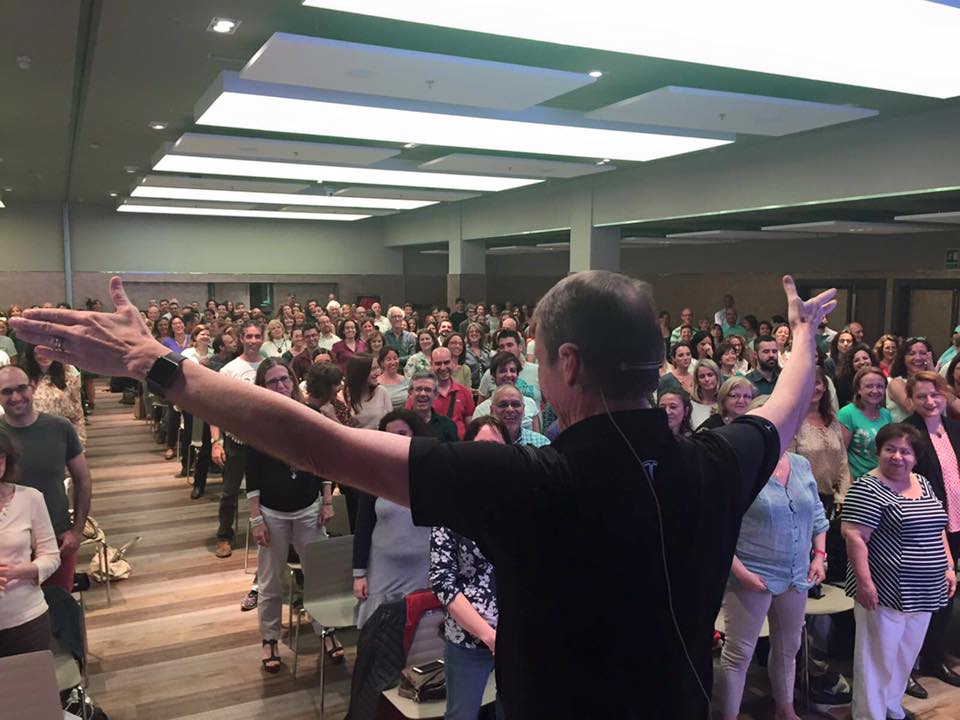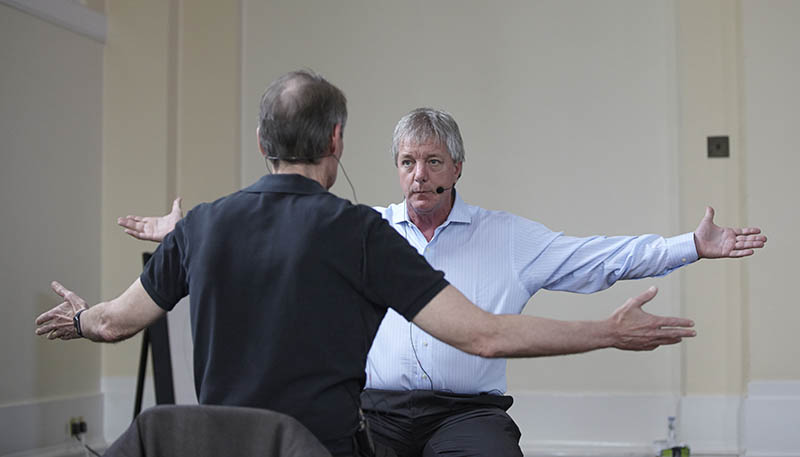Trainings
Generative Coaching Certification
Generative Coaching 2024-2025 Online IAGC Certification Training is now open to registrations…
Stephen Gilligan, Ph.D & Robert Dilts
Generative Coaching certification training is one of our core pathways for qualifying for IAGC professional membership.
Graduates will acquire basic competencies in applying Generative Coaching in their professional areas. The core focus in Generative Coaching is creativity: How do you create a successful and meaningful work life? How do you create great personal relationships? How do you develop a great relationship with yourself—your body, your past, your future, your wounds, and your gifts? These are the basic challenges in leading an extraordinary life, and Generative Coaching offers a way to succeed at them.
Generative Change means creating something beyond what has ever existed, whether in personal or professional life. It is not merely a cosmetic change, but a contextual shift that allows new levels of mastery. Generative Coaching assumes that reality is constructed and that this creative process can be mindfully engaged for positive outcomes. To do this, a person’s state of consciousness is the difference that makes the difference: The outcomes a person produces are only as good as their state. Generative Coaching teaches you how to build the generative states needed to make dreams come true. It then focuses on how to maintain these states in dealing with whatever challenges arise on a creative journey, so that new and meaningful results can occur.
The practical core of the training is the 6-step Generative Change process: (1) Opening a COACH (generative) field, (2) Committing to an intention/goal, (3) Developing a generative state, (4) Taking action, (5) Transforming Obstacles, and (6) Continuing to Grow and Change. Each training module is organized around the 6-step process, with each module progressively deepening coverage of each step. The last day of each module features an assessment with the 6-step process, thereby ensuring increasing capacity to competently practice Generative Coaching.
The 6-Step Generative Change Process
Training topics include:
The basic premises of generative coaching/ How generative coaching differs from traditional coaching and psychotherapy/ A model for how reality is created/ The three general domains of generative coaching: Work life, personal relationships, and self-relationship/ The inner game of mastery/COACH vs. CRASH states/ How to develop generative relationship fields with clients/ “Inviting demons to tea”/ archetypal energies/ Levels of learning and change/ Vision, mission, and ambition/ Holons, holograms, and creative transformation.
This training is highly practical and deeply experiential. You will develop the creative competencies to coach exceptional success. This integration of Gilligan and Dilts’ lifetime work is an extraordinary program, and we are confident it will produce amazing positive results in your life.
What can you do with certification?
- Certification is not a license
- Certified participants may professionally represent themselves as a – Practitioner of Generative Change: Generative Coaching
- It is the responsibility of each certified person to conduct their practice within the scope of their training and licensure (i.e., coaches are not clinical psychologists, doctors, financial advisors, etc.)
- The certified person should know when to refer a client to someone else who has the necessary expertise (as an analogy, a sports coach would refer an athlete who has broken a bone to a doctor)
- Certified persons are eligible for IAGC Professional membership
- Certified persons are only eligible to teach generative coaching work after achieving IAGC Authorization or Affiliation
Step 1: OPEN THE COACH FIELD
(In this step, both coach and client relax, ground, open, and attune to a creative field.) Multiple methods for opening a creative field for client, coach, and the client/coach relationship/ The importance of letting go of fixed ego frames and attuning to creative consciousness.
Specific methods include: Opening the vertical channel; COACH state via “ki” principles; Revivifying client’s COACH experiences; Opening the COACH field; Optimizing the COACH state; Three-point attention; Mindfulness mantras; Twirling.
Step 2: SET INTENTION/GOAL
(Here intention is identified as the “driver” for translating the infinite possibilities of creative consciousness into real and relevant forms.) The three representational forms of Intention: Declare, Envision, Embody/ Well formed creative intentions: Positive, succinct, resonant/ Levels of intention and learning/ Creating an aligned state/ Intentions vs. goals.
Specific methods include: Developing positive goals; developing well-formed intentions: Succinct, positive, resonant; representations in 3 languages: words, images, somatic; Somatic modeling of positive intention; Creating an aligned state; Application of intention to specific life contexts.
Step 3: DEVELOP A GENERATIVE STATE
(The client is supported to move into a high-level performance state relative to the intention/goal.) The three positive connections: Goal, centering, resources/ Methods of centering/ How to identify and creatively use resources/ Self-scaling: How to develop and maintain optimal creative states/ Beliefs (Basic beliefs for success; assessing and transforming beliefs)/ Archetypal energies (tenderness, fierceness, playfulness).
Specific methods include: Attuning to three positive connections; Optimizing state with self-scaling; Centering: Centering via Somatic Attunement, Centering via Positive Memories, Testing the Center w/Timeline method; Resources: Defining Your Desired State of Wellbeing, Developing resource symbols, Council of Resources; Beliefs: Belief Issues Related to Change, Basic Beliefs for Success, Assessing a Belief, Strengthening Beliefs, Common Negative Beliefs, Transforming Limiting Beliefs, Addressing Limiting Beliefs, Building a Belief Bridge; Holding Multiple Positions Simultaneously: 4 perceptual positions, Meta Mirror, New Choice Generator, Finding multiple truth positions: Walking the Tetra Lemma; Archetypal energies: Archetypal energies as resources, cultivating the archetypal energies of tenderness, fierceness, playfulness/ Transforming obstacles w/ archetypal energies.
Step 4: TAKE ACTION
(Identifying and actualizing the steps to success) Storyboards, Timelines, Diaries, and Plans/ Different phases of creative action: Dreamer, Realist, Critic/ Tracking and optimizing the underlying creative state throughout a performance/ Developing success templates/ Inviting the creative unconscious as a performance partner/ Tracking and adjusting the success plans.
Specific methods include: Timelines: Creating action plans; Somatic modeling of steps to a positive future; Mandala of Archetypal Resources, Moving forward while protecting/sponsoring vulnerabilities, Twirling into the Future, Multiple cycles of timelines. Storyboarding: Disney’s Imagineering Strategy, Three phases of storyboarding, Storyboards through Visual images, Somatic Modeling of storyboards, Generative collaboration of storyboards. Daily Diaries: Shaping the Generative Path.
Step 5: TRANSFORM OBSTACLES
(How can inevitable obstacles be creatively engaged and transformed as resources?) Problems and obstacles as integral parts of success. Aikido and Ericksonian techniques for welcoming obstacles/ Somatic modeling and somatic centering methods/ The four “relational mantras” for transforming negative experiences and behaviors.
Specific methods include: Transforming negative experiences into Resources by adding musicality, Transforming negative experiences with somatic centering, Generative transformation with Somatic Modeling, Practicing Moving Through Adversity to a State of Wellbeing, Integrating obstacles into positive path, Transforming a broken self into wholeness, Transforming goal/problem relationships with somatic modeling Transforming conflicting parts with somatic centering, The “Meta Mirror” Format, Identification and Our “Idealized Self”, Sponsoring Our Shadows,The Identity Matrix, and Four Skill Sets for Transforming Negative Experiences: Developing a Generative State, Humanizing the Negative Experience, Relational mantras, and Weaving Positive Resources.
Step 6: KEEP IT GROWING
(What to do after the sessions to further develop) The two main methods: Homework and generative practices. Coaching long-term success. The necessity of daily practices.
Specific methods include: Homework and Generative Practices; Collaborative development of homework; Collaborative development of daily practices; Practicing systemic change: The Moskowitz MIRROR method; The different types of homework assignments; The different types of daily practices; Motivation, accountability, and ongoing feedback.

